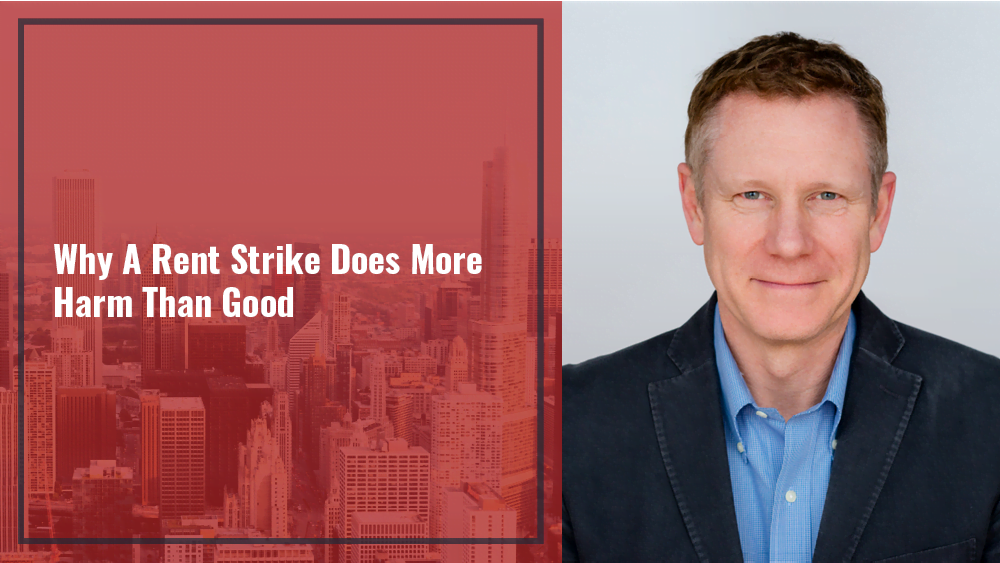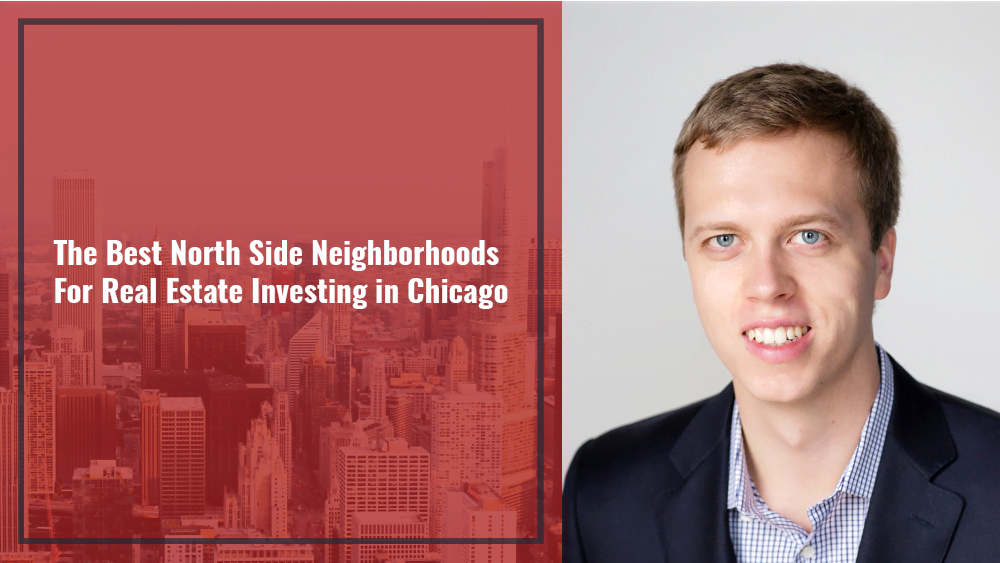04.08.20
Why A Rent Strike Does More Harm Than Good

Most renters think their rent payment goes directly into their landlord’s pocket, so a rent strike might seem like a good idea; afterall, why should a landlord make all that money when times get tough? That’s not the way it works, though.
In order to understand why a rent strike will do more harm than good, you first need to understand what happens to your rent after you pay it. As a commercial real estate broker who sells apartment buildings for a living, I have reviewed and analyzed thousands of income and expense statements from owners of apartment properties, and I know what that money is used for.
Where does your rent go?
The money that comes in from rent pays for a minutiae of smaller costs like property insurance (in case something happens to the building or a tenant), gas (so the boiler makes heat and tenants get hot water for a shower), electricity (for the hallway lights, elevators. etc.), water and sewer (kitchen and bathroom use by the tenants), garbage pickup service, maintenance and repairs for the building, painting and cleaning units that need to be re-leased, and a plethora of other expenses like legal, accounting and administrative. But these are the smaller expenses – then there are the big four expenses: property taxes, salaries for property staff, system failure reserves and mortgage payments.
Property Taxes from apartment buildings and other commercial properties provide most of the revenue for the county, which in turn pays for countless services (and salaries for those workers). If you don’t collect rent, you can’t pay property taxes.
Salaries For Property Staff are paid by the landlord for every employee a renter sees at their building (janitors, engineers, managers, leasing staff, etc.) and many other employees that are not seen by tenants (administrators, bookkeepers, asset managers, etc.). If you don’t collect rent, you can’t pay salaries.
System Failures Reserves means budgeting and saving to have money available so that when the boiler breaks and must be replaced, the landlord can afford to buy a new one so the tenants have heat. The same goes for roofs, windows, electric, plumbing and a host of other major systems that inevitably fail over time. If you don’t collect rent, you can’t fix major systems that fail.
Then comes the real biggie – the Mortgage Payment. Landlords borrow money from a bank to buy a building the same way most people borrow money for a house or a car – and the payments have to be made every month. If Mortgage Payments are not made, the bank will foreclose (just like a house or repossession of a car). If you don’t collect rent, you can’t make mortgage payments.
The reality is that out of every dollar paid for rent, only 5 to 8 cents is left as profit for the landlord after all the expenses have been paid – and that’s before the landlord pays federal income taxes on what’s left.
You might be thinking, “that’s great, but I lost my job and I can’t pay my rent”
I’ve talked with scores of landlords over the past three weeks since Governor Pritzker issued the shelter in place order. Without fail, every single one has said that if a tenant loses employment because of this crisis, they will work with them. I have heard everything from helping with applications for assistance to short-term concessions to forgiveness to numerous other incentives. Many people are experiencing great hardship amid the COVID-19 pandemic. “I cannot pay my rent” is very different from “I don’t want to pay my rent” or “My rent is too high.”
There is also a stereotype of the landlord – that overweight slob with twisted moustache knocking on doors for rent. While it’s easy to demonize a landlord and think they can “afford” it if you don’t pay, that’s simply not how it works. In addition, the vast majority of landlords in mid-to-low rise apartment buildings throughout Chicago are small mom and pop owners, and more than 8,000,000 landlords nationally fit this same category.
If you are unable to pay your rent, TALK TO YOUR LANDLORD. The flip side is that if you haven’t lost your job and you can pay the rent, pay the rent!
Why now is not the time for a rent strike
Affordable housing in our country is a real problem. Rent growth, gentrification and a lack of affordable housing are all reasons to seek social change. The idea of a rent strike, though, confuses the current crisis with a class war.
Vocabulary.com defines an Opportunist as a “person who sees a chance to gain some advantage from a situation, often at the expense of ethics or morals. Opportunists seize every opportunity to improve things for themselves.” The people calling for a rent strike right now are not interested in helping the those who have lost jobs and cannot pay rent . They are interested in the redistribution of wealth and using the current crisis to push their agenda forward.
In my opinion, the people behind the movement for rent strikes are as opportunistic as the guy who bought the 17,700 bottles of hand sanitizer in hopes of price gouging and making profit from a crisis. Instead of helping the people who are in crisis, they want to “stick it to the man” by not paying rent. If successful, they will deeply intensify the economic damage already being created by this crisis – and none of it will help the person who lost their job get a job back. Instead, it will only make a bad situation much, much worse. If you don’t pay your rent, none of the expenses I mention above get paid and the economy becomes even slower and harder.
I don’t disagree that change needs to happen – affordable housing needs to be much more available. I hope I have illustrated why a rent strike would not help the affordable housing problem or the economy. Now is the time for us to come together as a society, care for those most desperately in need, and prepare that the need will be even greater in the coming weeks and months. Now is not the time for a rent strike.
